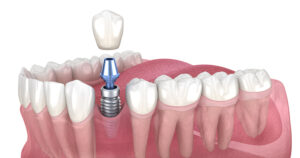Signs You Need a Root Canal: Identifying Symptoms and Seeking Treatment

Root canals are standard dental procedures to treat infected or damaged tooth pulp (the highly vascular sensitive tissue occupying the central cavity).
While the thought of undergoing a root canal may be daunting, recognizing the signs that indicate the need for this procedure can help prevent further complications and alleviate dental pain.
We will explore the common signs that indicate the need for a root canal and emphasize the importance of seeking timely treatment.
What is a root canal?
A root canal is a dental procedure designed to treat the innermost part of a tooth, known as the pulp.
The pulp consists of nerves, blood vessels, and connective tissue that can become infected or damaged from tooth decay, cracks, or trauma.
During a root canal procedure, the infected or damaged pulp is removed, and the tooth is cleaned, filled, and sealed to prevent future infection.
Signs you may need a root canal
- Persistent and severe toothache: If you experience persistent and intense tooth pain, especially when biting or applying pressure to the affected tooth, it may indicate the need for a root canal. The pain can range from sharp and sudden to a constant, throbbing ache.
- Sensitivity to hot and cold: Increased sensitivity to hot or cold temperatures, even after removing the stimulus, can signify pulp inflammation or infection. The discomfort may linger for an extended period, indicating the need for a root canal.
- Gum swelling and tenderness: Swollen and tender gums around a specific tooth can indicate infection or inflammation in the root canal. The area may appear red and accompanied by a small pimple-like bump called a gum boil, which can release pus.
- Tooth discoloration: If you notice that a tooth has become significantly darker or discolored compared to your other teeth, it may be a sign of nerve damage or infection within the tooth. A root canal may be necessary to address the underlying issue and restore the tooth’s natural color.
- Prolonged sensitivity to touch: When a tooth becomes sensitive to touch, such as when eating or brushing, and the sensitivity lingers for an extended period, it could indicate the need for a root canal. Persistent sensitivity is often a result of nerve damage or infection.
- Loose tooth: A tooth that feels loose or unstable without apparent cause may require a root canal. The infection or damage to the tooth’s pulp can weaken the supporting structures, leading to mobility.
- Presence of an abscess: An abscess is a pus-filled pocket that forms at the root tip of an infected tooth. It is often accompanied by severe pain, swelling, and a bad taste or odor in the mouth. An abscess is a severe dental condition that requires immediate attention and often necessitates a root canal.
Seeking treatment for a root canal
If you experience any of the signs mentioned above, it is crucial to seek prompt dental care.
Ignoring the symptoms or delaying treatment can lead to further complications, such as:
- The spread of infection
- The formation of dental abscesses
- The loss of the affected tooth
When you visit your dentist, they will perform a thorough examination, which may include X-rays to assess the condition of the affected tooth and the surrounding structures. Based on their findings, they will determine if a root canal is necessary.
The dentist will administer local anesthesia during the root canal procedure to ensure your comfort. They will then remove the infected or damaged pulp, clean the root canal space, and fill it with a biocompatible material. A dental crown may sometimes be placed on the tooth to provide additional strength and protection.
Addressing the underlying infection or damage through a root canal can save your natural tooth, restore its function, and alleviate pain.
FAQs
Is a root canal a painful procedure?
Thanks to modern advancements in dentistry, root canal procedures are performed under local anesthesia, ensuring minimal discomfort. Most patients feel relief from the pain they experienced before the root canal.
Can a tooth that had a root canal treatment get infected again?
Rarely a tooth undergoing a root canal treatment can become re-infected. This can occur if the tooth isn’t properly sealed or if new decay or damage affects the treated tooth. Regular dental checkups and maintaining good oral hygiene are essential to prevent reinfection.
Can I delay getting a root canal if I’m not experiencing severe pain?
It is not advisable to delay necessary root canal treatment. Even if you’re not experiencing severe pain, the underlying infection or damage can progress and lead to more significant issues, such as abscesses or tooth loss. Seeking timely treatment is crucial to prevent complications.
Are root canals only performed on adult teeth?
Root canals can be performed on adult and primary (baby) teeth. While primary teeth naturally exfoliate over time, treating infections or damage is essential to maintain proper oral health in children and prevent complications.
How can I prevent needing a root canal in the future?
Maintaining good oral hygiene practices, including regular brushing, flossing, and routine dental checkups, can help prevent tooth decay and catch any dental issues early on. Avoiding excessive sugar consumption and wearing a mouthguard during physical activities can prevent dental injuries.
Conclusion
Recognizing the signs that indicate the need for a root canal is a part of maintaining good dental health.
If you experience persistent tooth pain, sensitivity, gum swelling, tooth discoloration, or any other concerning symptoms, it is essential to seek professional dental care promptly. Your dentist will assess your condition, determine the appropriate treatment, and guide you through the root canal procedure, ensuring the restoration of your oral health and overall well-being.
Early intervention saves your natural tooth and prevents further dental complications.
Or:
- Call us: 847-662-7717
- Email us: info@ruledds.com
Rule Dentistry is located in Gurnee, IL, and we happily welcome folks from neighboring areas.


